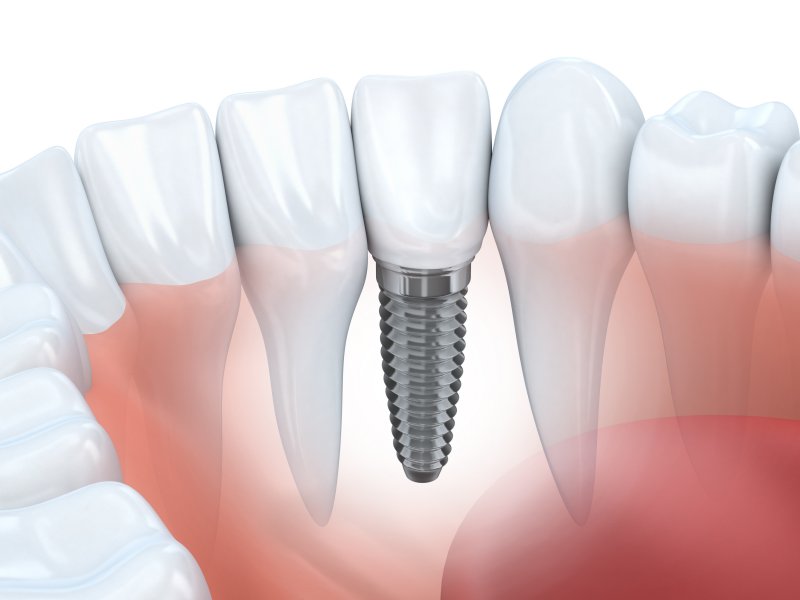
Dental implants are the gold standard of tooth replacement, and when you take a look at the results they can produce, it’s easy to see why. They come second only to natural teeth in chewing, talking, and smiling.
If you’re looking into them, you may have heard it mentioned that they’re incredibly durable. But how long do they last exactly? If you’re curious, here’s a guide that can tell you everything you need to know.
How Long Do Dental Implants Last?
Normally, talking about how long an oral appliance will last can be a bit thorny, because there’s such a wide variance. Dental implants, however, are stunningly reliable.
Studies have shown that dental implants have a 95% success rate at 20 years, so you can expect them to last at least that long with proper care. If well maintained, it’s not uncommon to see implants last up to three decades!
How Do I Make My Dental Implants Last?
There are two main things that can cause a dental implant to fail prematurely. If you avoid them, it’s possible to see your implant last for decades.
The first potential pitfall comes directly after the surgery. Osseointegration is the term describing the process of the jaw healing around the implant post in the weeks after the procedure. Osseointegration failure can cause the dental implant to come loose.
There are a few reasons why osseointegration can fail. Patients with diabetes or who are on immunosuppressants might not have a strong enough healing factor to incorporate the implant properly. Smoking can also interfere with the healing process; one study found that smokers were 14% more likely to see their implants fail. For that reason, it’s recommended that you quit using tobacco for two weeks before and ninety days after the surgery.
The second cause of failure has to do with infection. When bacteria slip under the gumline, they can attack the jawbone that supports the dental implant. This leads to bone loss that can cause the dental implant to come loose.
This style of infection is often a consequence of gum disease, so good dental hygiene is critically important to the success of your dental implant. Once your dental implant has healed, be sure to brush it twice a day, floss it daily, and use an antibacterial mouthwash to reduce your chance of infection.
About the Author
Dr. Steve Yusupov is a dentist who loves being able to make positive changes in his patients’ lives. His passion for helping people motivates him to constantly improve his work and learn everything he can about his field. Dr. Yusupov received his DDS with high honors from the NYU College of Dentistry, and he has received training in numerous specialties since.
If you have any questions about dental implants, he can be reached at his website or by phone at (516) 744-6262.
